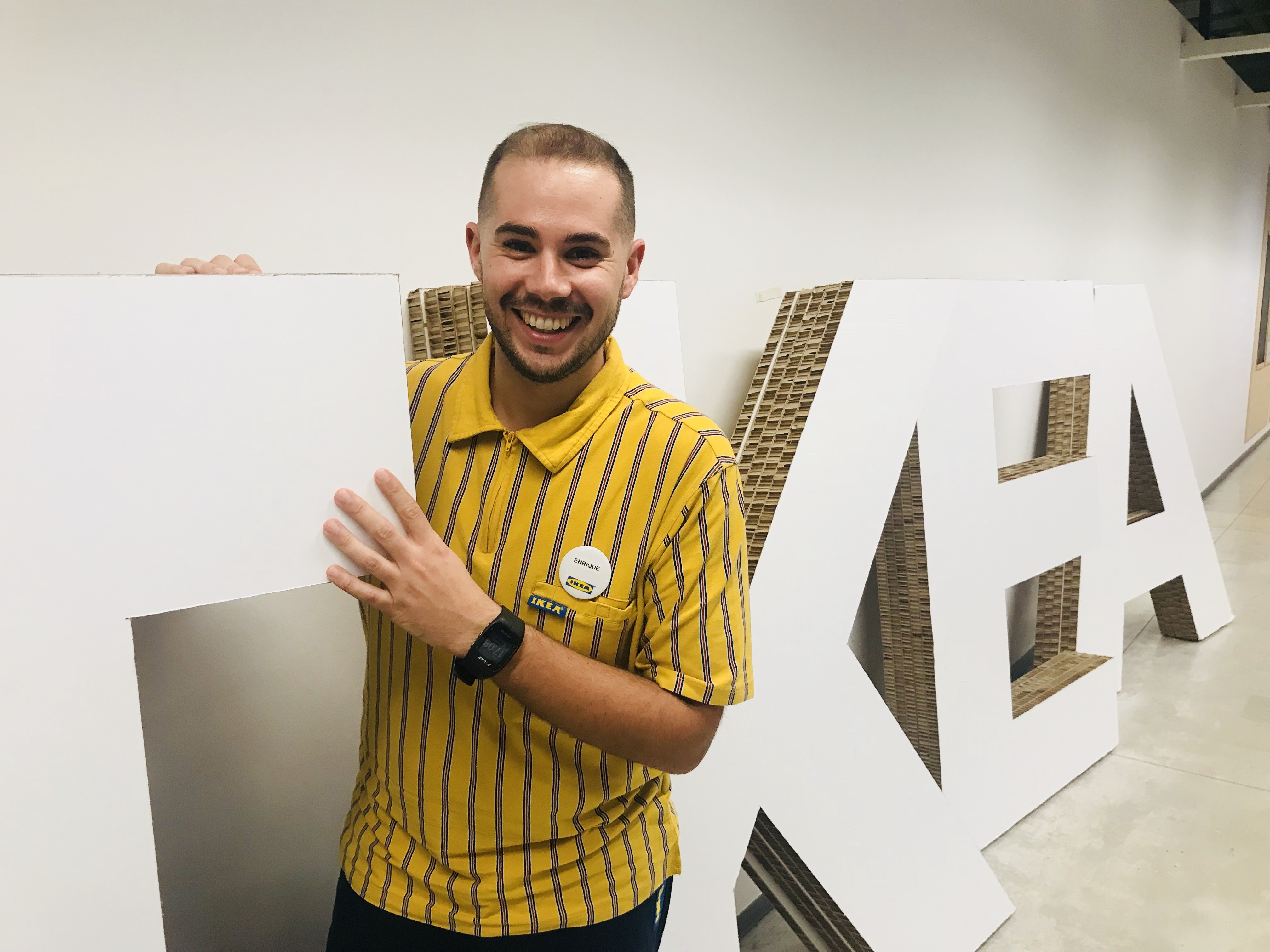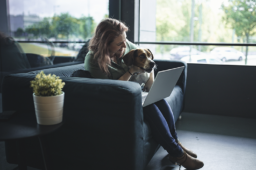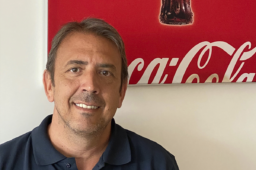
Enrique López (IKEA): “Employees are the most reliable and credible source when it comes to talking about the company itself”
- December 04, 2018
Enrique López, Recruitment Specialist at IKEA Málaga, defines himself as passionate about HR 2.0, a human resources strand that has allowed him to learn about Social Recruiting, a methodology that helps them attract talent. In addition, IKEA is a company that is firmly committed to Employee Branding, which is why last year it launched www.sinvueltadetuerca.com, a platform where employees receive training on social networks and can find a manual of recommendations, if they wish. link to the brand on their social profiles. Enrique has participated as digital champion and beta tester of the project.
For you, training is key to the development of Employee Branding and that is why you launched the platform www.sinvueltadetuerca.com. What assessment do you make of this initiative that already has 2 years and what acceptance has it had among workers?
Social networks sin vuelta de tuerca is an initiative launched by the Communication, Human Resources and Social Networks areas, and is aimed at developing the social / digital skills of the entire IKEA team. The objective of this platform is to broaden the organization’s digital vision, enhance internal links and strengthen IKEA’s position as an employer brand. The objective of this platform is to broaden the organization’s digital vision, enhance internal links and strengthen IKEA’s position as an employer brand. Sin Vuelta de Tuerca it not only includes a series of recommendations that build a user manual for IKEA employees who want to link to the brand on social networks, but it is also an e-learning platform to contribute to the digital maturity of the workforce. Although we have been working on the project for more than 2 years, it was launched a few months ago, so personally, the assessment I make has a lot to do with my involvement in the project: I think the fact that co-workers have participated In the development of the platform, it ensures that it is designed by and for IKEA employees. Fortunately, almost 90% of the team are proud to be part of this brand, and this feeling of belonging has a lot to do with our willingness to link to IKEA on our social profiles. Many of us demanded from the company a clear framework in which to move on social networks and I think that Sin Vuelta de Tuerca it has turned this demand into an opportunity, contributing to the digital training of workers in the process of IKEA’s digital transformation in Spain.
Do you have KPI’s to measure the results of this initiative? What are the next steps after launching it?
Sin Vuelta de Tuerca it is not intended to be a static project but rather a living one, because one of the great advantages of internal digital tools is that they allow us to measure, continue to improve, and adapt projects to the needs of workers. For this reason, we have used a platform that allows the traceability of all courses to be measured and the user experience to be monitored. There are several KPI’s that we have marked: from the number of registered users or visits to the web, to the number of approved courses and average grades, through to the final satisfaction of the workers according to the number of evaluations or recommendations to other colleagues. Of course, we will also measure whether the platform has generated a greater social presence of IKEA workers on social networks. Our ambition is to get IKEA represented by the people who make it possible every day.
But the truth is that we are still in the launch phase of the platform and it is early to draw conclusions. On the following steps, in addition to continuing to promote the platform in stores, we would like to share this project, as good practice, with organizations that want to take advantage of the opportunity offered by the digital environment and wish to launch a similar initiative for linking and social activation.
You comment that it is a platform created by and for workers. How have the company’s workers been involved in the development of the platform? What tools or meeting points have you used?
 As I was saying, the definition and development of the project has had the participation of workers since its inception and responds to a clear demand from employees who wanted to link to the brand on social networks, but who also had doubts about how to do it. For this reason, the working group began this journey with many questions and, above all, listening to each and every one of the answers: a survey or digital barometer was carried out to measure digital maturity and use of social networks within IKEA and two workshops were launched with employees with different levels of digital maturity and active in internal and external social networks, who were called “digital champions”.In these workshops our day-to-day at IKEA was analyzed, from the point of view of digital accessibility and convenience, and we built together what, after more than a year of work, various consultations through our internal social network as a forum and a phase end of testing with that same group of “champions”, ended up becoming Social Networks Sin Vuelta de Tuerca. Currently, our forum is an open group on our social network, Yammer, the channel enabled to continue collecting doubts, suggestions or possible incidents.
As I was saying, the definition and development of the project has had the participation of workers since its inception and responds to a clear demand from employees who wanted to link to the brand on social networks, but who also had doubts about how to do it. For this reason, the working group began this journey with many questions and, above all, listening to each and every one of the answers: a survey or digital barometer was carried out to measure digital maturity and use of social networks within IKEA and two workshops were launched with employees with different levels of digital maturity and active in internal and external social networks, who were called “digital champions”.In these workshops our day-to-day at IKEA was analyzed, from the point of view of digital accessibility and convenience, and we built together what, after more than a year of work, various consultations through our internal social network as a forum and a phase end of testing with that same group of “champions”, ended up becoming Social Networks Sin Vuelta de Tuerca. Currently, our forum is an open group on our social network, Yammer, the channel enabled to continue collecting doubts, suggestions or possible incidents.
Last year, Eurofirms carried out the X-ray of Employee Branding in companies in Spain and one of the results was that 78% of companies are present on social networks, but only 20% invest in training. What is the main reason why you would recommend companies to invest in training their teams?
The way we companies have to communicate with our clients, suppliers and candidates has changed. There are numerous studies that reveal that employees are perceived as the most reliable and credible source when it comes to talking about any issue of the company itself and it is useless to have employees who are willing to do it, but who do not have the necessary tools and training. As I mentioned, with Sin Vuelta de Tuerca we also have the objective of inspiring other companies and, in fact, many of the contents of this platform are public for this reason: we want to share knowledge and learning with anyone who may be interesting.
What strategies or initiatives do you carry out from the Human Resources area so that the workers share their day-to-day life at IKEA and publish on social networks, following the company’s values?
In this sense, we feel very lucky because before the Sin Vuelta de Tuerca platform, we already had many employees who wanted to link to the brand on social networks, but had doubts about how to do it. It was just then that this initiative emerged. The demand from employees was clear, they wanted to increase their level of digital knowledge and now they have at their disposal a platform where they can learn to build a solid and coherent digital identity that defines them positively and differentiates them. In addition, for a time now, we use social elements in our internal communication campaigns, referring employees to the company’s external social networks as the main source of information, so that we involve workers and invite them to interact openly with the official profiles of IKEA Spain. Once this is achieved, it will be the decision of each one to enjoy in this digital environment the values and interests they have in common with the company. For us, the strategy only resides in providing all the ingredients so that this happens organically.
People First es un espacio de inspiración donde compartimos contenidos con un eje común: las personas. Desde distintas ópticas y sectores, abordamos varios temas, tendencias y noticias de interés humano.





